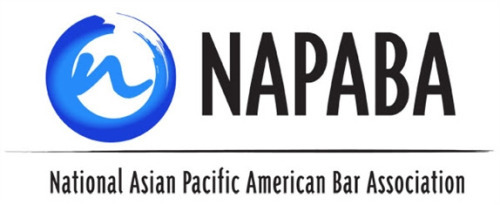
WASHINGTON — The National Asian Pacific American Bar Association (NAPABA) is deeply disappointed in today’s decision by the United States Supreme Court to uphold President Trump’s Muslim Ban in Trump v. State of Hawaii. In a 5-4 ruling, the Court ended the U.S. Court of Appeals for the Ninth Circuit’s injunction of President Trump’s revised executive order that bars individuals from six Muslim-majority countries from entering the U.S.
“We are frustrated by the outcome of the Supreme Court’s decision in Trump v. State of Hawaii and concerned about its real-world implications. The Court’s reasoning results in sanctioned discrimination, a consequence that runs counter to our values,” said Pankit J. Doshi, president of NAPABA. “Today’s decision opens the door further to hate and discrimination against Muslims and other marginalized groups. Unfortunately, the Court has chosen to turn a blind eye to anti-Muslim animus and codified prejudice.”
Doshi continued, “Although the Court took the commendable step of denouncing the holding of Korematsu, it rejected the important lesson that the current case presented. The Court’s decision to accept the government’s national security rationale and minimize the impact of the President’s express statements and actions will have long-term, negative consequences.”
President Trump’s original order, announced in January 2017, stopped refugees from entering the U.S. and halted immigration from Muslim-majority countries. The federal government issued two revised versions of the Muslim ban, which continued to place discriminatory restrictions on immigration from certain Muslim-majority countries. The third version, released in September, was at issue in this case. The third order was blocked by the U.S. District Court of Hawaii and the U.S. Court of Appeals for the Ninth Circuit; concurrent litigation occurred in the U.S. District Court of Maryland and the U.S. Court of Appeals for the Fourth Circuit.
NAPABA has condemned the Muslim ban executive order since it was first announced, and continued to oppose its later variants. NAPABA first filed an amicus brief in support of Hawaii’s challenge to the revised order in the U.S. District Court of Hawaii, which enjoined the order in
March 2017. NAPABA then led 43 Asian Pacific American bar associations from around the country in filing an amicus brief in the U.S. Court of Appeals for the Ninth Circuit, which ultimately upheld Hawaii’s original Muslim ban injunction in April 2017. NAPABA most recently led 62 Asian Pacific American bar associations in filing an amicus brief in the Supreme Court in April 2018.
In its amicus brief filed in the Supreme Court, NAPABA argued the order was not within the scope of Presidential authority. NAPABA explained that Congress had deliberately omitted the option for the government to discriminate based on national origin in immigration policies when it passed the Immigration and Nationality Act, repudiating the lineage of anti-Asian orders that served as the foundation of American immigration law.
NAPABA is grateful for the many individuals involved in drafting its Supreme Court amicus brief, including its lead pro bono counsel, James W. Kim, a NAPABA member and partner at McDermott Will & Emery LLP, in Washington, D.C.; Mr. Kim’s team (including Cathy Zeman Scheineson, Matthew M. Girgenti, and Llewelyn M. Engel); NAPABA Amicus Committee co-chairs, Professor Radha Pathak of Whittier Law School and Albert Giang, a partner at Boies Schiller Flexner LLP in Los Angeles; Meredith Higashi, NAPABA Civil Rights Committee co-chair; Navdeep Singh, NAPABA policy director; and Oriene Shin, NAPABA policy counsel. NAPABA is also appreciative of the many NAPABA affiliates that joined the effort to challenge this series of orders.
For more information, the media may contact Brett Schuster, NAPABA communications manager, at 202-775-9555 or [email protected].
The National Asian Pacific American Bar Association (NAPABA) is the national association of Asian Pacific American attorneys, judges, law professors, and law students. NAPABA represents the interests of over 50,000 attorneys and over 80 national, state, and local bar associations. Its members include solo practitioners, large firm lawyers, corporate counsel, legal services and non-profit attorneys, and lawyers serving at all levels of government.
NAPABA continues to be a leader in addressing civil rights issues confronting Asian Pacific American communities. Through its national network of committees and affiliates, NAPABA provides a strong voice for increased diversity of the federal and state judiciaries, advocates for equal opportunity in the workplace, works to eliminate hate crimes and anti-immigrant sentiment, and promotes the professional development of people of color in the legal profession.
To learn more about NAPABA, visit www.napaba.org, like us on Facebook, and follow us on Twitter (@NAPABA) and Instagram (@napabanational).

